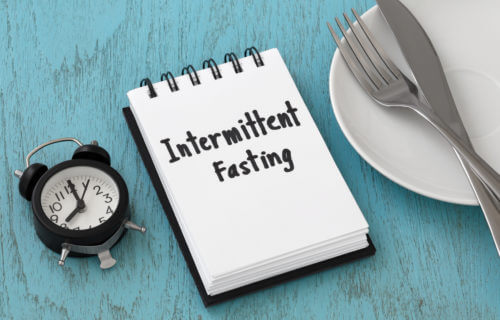TORONTO — Intermittent fasting continues to be heralded by dieters, nutrition experts, and doctors alike as a highly effective eating routine for overall health. Defined as forgoing food for more than eight hours at a time, the technique is touted as an effective way to control or lose weight and positively affect both long and short-term health. Despite a strong body of research pointing to these health benefits, very few research projects, however, have investigated the darker side of intermittent fasting.
Now, new findings from the University of Toronto link intermittent fasting to dangerous eating disorder attitudes and behaviors among both adolescents and young adults.
The study encompasses data from over 2,700 adolescents and young adults originally collected by the Canadian Study of Adolescent Health Behaviors. Researchers report finding a connection between intermittent fasting and all disordered eating behaviors for women. That includes binge-eating, as well as compensatory behaviors like vomiting and compulsive exercise. For men, those who tried the diet routine were also more likely to report compulsive exercise.
Overall, it’s clear that intermittent fasting is quite popular among adolescent and young adults. A total of 47 percent of women, 38 percent of men, and 52 percent of transgender or gender non-conforming individuals told study authors they had engaged in the diet over the prior year.
“Given our findings, it is problematic how prevalent intermittent fasting was in our sample,” says lead study author Kyle T. Ganson, PhD, MSW, assistant professor at the University of Toronto’s Factor-Inwentash Faculty of Social Work, in a media release.
Intermittent fasting may not be an appropriate recommendation for everyone
Among all three cohorts, subjects reported engaging in intermittent fasting for an average of 100 days over the past 12 months.
“The associations found between intermittent fasting and eating disorder behaviors are particularly salient, given the significant increase in eating disorders among adolescents and young adults since the start of the COVID-19 pandemic,” explains study co-author Jason M. Nagata, MD, MSc, assistant professor at the University of California, San Francisco.
In conclusion, study authors say these findings should serve as a warning to healthcare professionals regarding the recommendation of intermittent fasting as a way to lose weight. It may not be such a good idea, as it appears to promote eating disorder attitudes and behaviors.
“We need more education in healthcare settings and greater awareness in popular culture, including social media, of the potential harms of intermittent fasting,” Prof. Ganson concludes. “At this point, the proposed benefits are still unclear and unsupported by research, and the potential harms are becoming clearer.”
The study is published in Eating Behaviors.


Another bad science study done without real any large control group. Throwing intermittent fasting under the bridge as if it were a bad way to diet. Done correctly it has help millions of people lose weight and reduce the inflammation in our bodies that is causing every disease from diabetes to cancer. You reap the benefits of autophagy. Of course younger adults have eating disorders brought on by body dysmorphia. They are never happy about the way they look. This type of crap science does nothing to prove that intermittent fasting doesn’t work if done properly. Give me a break.